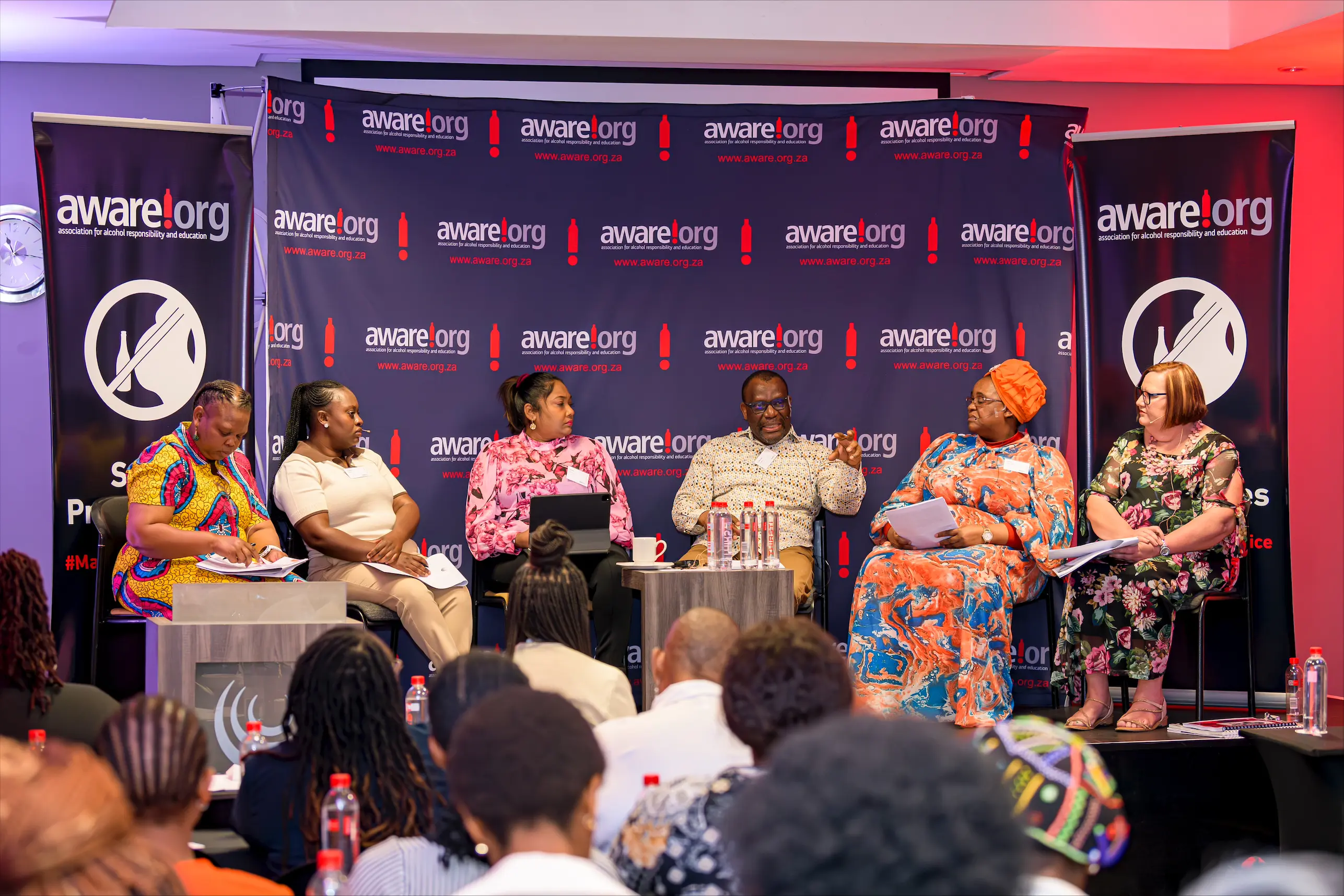


Understanding Fetal Alcohol Spectrum Disorders (FASD)
Aware.org tackles FASD through national dialogue.
AWARE.org convened a landmark Fetal Alcohol Spectrum Disorder (FASD) Roundtable in Johannesburg, bringing together government, health, education, research, civil society, and industry leaders. The dialogue addressed the stark reality that South Africa holds the highest recorded FASD prevalence rates globally, impacting tens of thousands of children each year with preventable lifelong disabilities.


What is FASD?
Definition
Fetal Alcohol Spectrum Disorders (FASD) is a group of conditions that can occur in a person exposed to alcohol during pregnancy.
Features of FASD
- Physical features: Decreased height, weight, and head circumference. Birth defects, organ damage, characteristic facial features and other physical abnormalities
- Cognitive challenges: Learning disabilities, speech and language delays, poor memory, attention deficits.
- Behavioural challenges: Hyperactivity, poor impulse control, emotional regulation and social challenges.
Aware FASD Roundtable
FASD Roundtable Outcomes


Causes and prevention
Causes
FASD is caused by alcohol consumption during pregnancy. No amount of alcohol is safe at any time during pregnancy. FASD is a lifelong condition but it is preventable.
Prevention Tips
- Avoid alcohol: If you are pregnant or trying to become pregnant, do not drink alcohol.
- Seek support: If you find it difficult to stop drinking, seek help from a healthcare provider or a support group.
- Educate others: Spread the word about the risks of drinking during pregnancy.

Overcoming stigma
Understanding stigma
People with FASD, their mothers, and their families often face social stigma, discrimination, and isolation.Stigma never helps and always causes harm, preventing those who need it from seeking help and support.Awareness and education are key to reducing stigma and creating supportive environments.
How you can help
- Be informed: Educate yourself and others about FASD.
- Be supportive: Offer understanding and support to individuals and families affected by FASD.
- Advocate: Promote policies and programs that support FASD prevention and support.
Resources and contact information
Where to get help:
- WhatsApp helpline: 087 163 2025
- FARR Support Services: info@farrsa.org.za / 021 686 2625
Join the cause:
- Donate to support FASD prevention and support programmes.
Contact Us:
- FARR: farrsa.org.za

